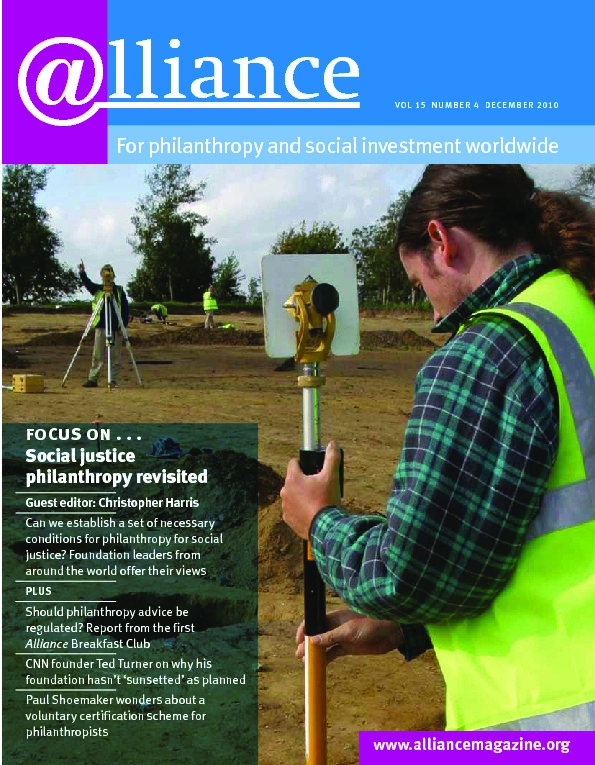Alliance is to be commended for dedicating its September issue to philanthropy advice and for avoiding its being perceived as an ‘advertising supplement’. Despite a bit of subtle pitching by some, there were some important issues raised and ways forward suggested. The tone was honest and analytical.
I find myself in almost complete agreement with comments made by Melissa Berman about the smallness and desperate nature of the philanthropy advisory sector. There are too many people ‘not connected to the sector giving free [and, if I may add, not so free and not guaranteed to be appropriate] advice’; and standards and a code of ethics are needed. Felicitas von Peters makes excellent points about transparency and trust, particularly between those of us who are acting as philanthropy advisers and philanthropists – and among ourselves.
With all this said, why does this problem persist? Why is there not a functional philanthropy advisory market, based on transparency, trust, professional standards and ethics? And why, as Felicitas asks, ‘is there no real debate about the roles and motivations of advisers, nor a framework for a recognized profession?’ Isn’t it up to those of us in the profession, including our peers in foundations and other institutions, to do something about this? If, as philanthropy advisers, we wish to be considered on a par with other wealth advisers (lawyers, bankers, accountants), then we must conduct ourselves like a profession and not an add-on to other groups.
New Philanthropy Capital, Philanthropy UK and STEP in the UK, and others are to be commended for their initiatives in building capacity and networks. The truth of the matter is that too many philanthropists and even their wealth advisers simply do not know what we do. Initial conversations often begin with how one can help donors to develop their philanthropy vision and make it a rewarding and effective reality – and the myriad of steps in between.
People (including university deans) frequently ask me when I mention the philanthropy course I teach at Sciences Po, ‘can you really teach philanthropy?’ Similarly, one needs to make the case for philanthropic advising, stressing the skills, knowledge and experience it requires and the standards, ethical and other, to which we adhere. We need to demonstrate that we are a learning profession; that there are best practices.
The aim is ‘not to undermine what is already there, but to build on it’, as Gerry Salole suggests. It is our responsibility to challenge what is there as well, and engage in debate with our peers, our clients and other stakeholders – and take some of the advice in the September special feature. Then Gerry Salole can give up his keys.
Judith Symonds
Philanthropy adviser and co-coordinator of the European Philanthropy Learning and Research initiative





Comments (0)